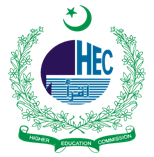Concerns of Political Parties of Pakistan in the Digital Age: Reconciliation or Fragmentation?
DOI:
https://doi.org/10.5281/zenodo.17150141Keywords:
Pakistan 2024 Elections, Digital Politics, Social Media Discourse, PML-N, PPP, PTI, Facebook, Twitter, Party Manifestos, Political Polarization, Reconciliation.Abstract
The present paper analyzes the digital discourse of the three leading political parties in Pakistan, including Pakistan Muslim League-Nawaz (PML-N), Pakistan People’s Party (PPP), and Pakistan Tehreek-e-Insaf (PTI), during the 2024 general elections. On the one hand, analyzing communication on Facebook and Twitter through official government channels, as well as reading manifestos of political parties of the future elections in 2024, the study determines whether the digital environment promoted reconciliation or increased fragmentation in the Pakistani political world. It has been found out that all the three parties employed social media to mobilize them as well as to directly communicate with voters, yet their messaging was mostly contentious. Dev-based growth and economic recovery were the core ideas promoted by PML-N that often engaged in digital conflicts with PTI; social welfare and constitutional democracy are the main priorities of PPP and it was eager to find a compromise between criticism and unification efforts but delegitimized opponents; populist anti-corruption rhetoric and strong focus on online activities were the core concerns of PTI that most often undermined the position of rivals. Despite certain convergence in structural reforms as revealed in manifestos, the virtual debate was likely to erupt polarization. The research findings indicate that the political landscape of Pakistan in 2024 was shaping up toward polarization, but there was sectional unity which can lead to unity provided it is used as a tactical advantage.
Downloads
Published
Issue
Section
License
Copyright (c) 2025 Adeel Ahmed, Dr. Abdur Rehman Butt, Muhammad Shoaib Jamil, Dr. Muhammad Ahmad

This work is licensed under a Creative Commons Attribution-NonCommercial 4.0 International License.








